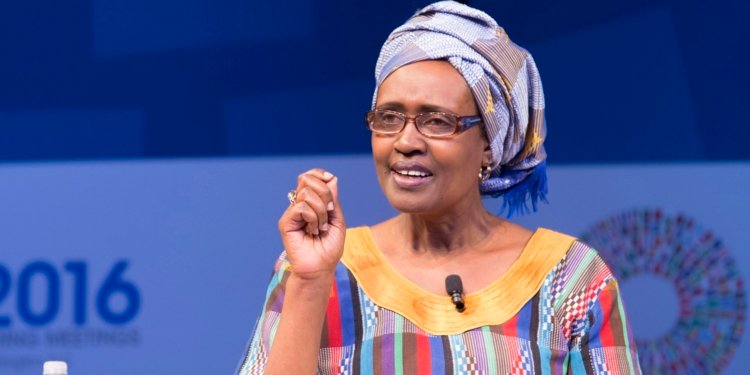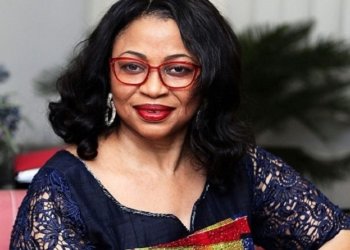What if one person could truly reshape global justice and healthcare access for millions? Meet a leader whose decades of work challenge inequality at its core.
Winnie Byanyima stands as a powerful voice for human rights worldwide. She currently serves as the Executive Director of UNAIDS and Under-Secretary-General of the United Nations. Her role puts her at the forefront of global health and equality efforts.
For years, Byanyima has fought for social justice and fair access to medicines. She believes healthcare is a fundamental human right, not a privilege. Her career spans politics, international advocacy, and grassroots activism.
This profile explores how one dedicated champion drives change across nations and systems. Her story inspires action and offers a blueprint for meaningful leadership.
Key Takeaways
- Winnie Byanyima leads UNAIDS as its Executive Director.
- She holds a high-ranking position as a United Nations Under-Secretary-General.
- Her work focuses on achieving global equality and justice.
- She advocates for healthcare and medicine access as basic human rights.
- Byanyima has a long career in politics, activism, and international organizations.
- Her leadership demonstrates a strong commitment to ending inequalities.
- She is recognized for her impactful and inspiring contributions worldwide.
Introduction to Winnie Byanyima’s Global Impact
Her leadership extends far beyond any single role. As the executive director of UNAIDS, she spearheads the United Nations bold mission to eradicate AIDS by 2030. This goal drives global health policy and unites nations in a common fight.
She champions social justice through groundbreaking initiatives. She co-founded the People’s Vaccine Alliance, demanding free COVID-19 shots for everyone. This early call for equity set a new standard for pandemic response.
Her influence as an Under-Secretary-General is profound. It allows her to shape international policy on a massive scale. She brings together governments, companies, and communities to find real solutions.
Her work tackles deep-rooted inequality head-on. She fights for fair access to medicines and technologies worldwide. This ensures life-saving treatments reach those who need them most.
Her vision for justice includes a strong focus on gender equality. She has led efforts on various global commissions and councils. Her approach is always practical and people-centered.
This leader’s impact is both broad and deeply personal. She transforms systems while empowering individuals. Her legacy is one of tangible change and relentless hope.
Winnie Byanyima’s Distinguished Career Path
Her professional journey shows a clear path toward global leadership. Each role built on the last, expanding her reach and impact. This progression demonstrates her growing commitment to worldwide change.
Early Political Career in Uganda
She served three terms in Uganda’s parliament. This spanned eleven formative years in public service. Her time in office taught her how systems work for people.
She led the first parliamentary women’s caucus. This group fought for gender rights in national policy. Their work created new opportunities for Ugandan women.
Her most significant achievement came during constitutional reform. She helped draft the 1995 post-conflict constitution. She ensured strong equality provisions were included for all citizens.
Leadership at Oxfam International
She became executive director oxfam in 2013. As director oxfam international, she managed programs in over 90 countries. Her focus remained on fighting poverty and injustice.
She empowered communities through local organizations. This approach created lasting change at the grassroots level. She proved that real solutions come from the people affected.
Her seven years as director oxfam showed her global vision. She connected local struggles to worldwide movements. This experience prepared her for even larger challenges ahead.
Current Role as UNAIDS Executive Director
She was appointed byanyima executive director of UNAIDS in 2019. She succeeded Michel Sidibé with strong qualifications. Her background in health justice made her the ideal choice.
Her political experience gave her unique advocacy skills. She understands how to navigate complex international systems. This helps her advance the organization’s critical mission.
She continues to champion health access for all people. Her career shows a steady climb toward greater influence. Each step prepared her for this vital global role.
Key Achievements in Gender Equality and Social Justice
Building frameworks for equality requires more than vision—it demands concrete structural achievements. Her work has created lasting institutions that advance rights across multiple sectors.
Founding Forum for Women in Democracy
She established the Forum for Women in Democracy to boost political participation. This Ugandan NGO trains women for leadership roles and policy advocacy.
It became a model for increasing female representation in governance. The organization continues to influence gender equality in African politics today.
African Union Gender Protocol Development
She helped create the African Union Commission’s Directorate of Gender Development. This permanent office coordinates continental gender equality efforts.
Her work on the Protocol on the Rights of Women in Africa proved particularly significant. This legal instrument protects women’s health rights and reduces HIV vulnerability.
The protocol establishes concrete standards for justice and healthcare access across member states.
Global Commission Leadership Roles
She served on multiple influential global commission bodies addressing interconnected challenges. These included the Global Commission on Climate Adaptation and ILO’s Future of Work global commission.
Her position on the World Bank’s Advisory Council on Gender Development shaped international financing policies. She also co-chaired World Economic Forum discussions on economic inclusion.
These roles demonstrate how social justice connects climate, labor, and economic systems. Each global commission contributed to broader institutional changes.
Her advisory council gender work ensured that development policies prioritized equality. This integrated approach defines her contribution to gender development worldwide.
Educational Background and Professional Recognition
The combination of technical expertise and humanitarian vision distinguishes this leader’s unique profile. Her educational foundation in engineering provides an analytical framework for tackling complex global challenges.
Engineering Degrees from Prestigious Institutions
She earned her Bachelor of Science degree in aeronautical engineering from the prestigious University of Manchester. This rigorous program provided strong technical foundations in aerospace systems and design principles.
She continued her studies with a Master of Science degree in mechanical engineering from Cranfield University. Both institutions are renowned for their excellence in engineering education and research.
Her technical background informs her problem-solving approach to social issues. The analytical thinking developed through engineering studies enhances her policy work. This unique combination shapes her effectiveness as a global director.
Multilingual abilities further strengthen her international profile. She speaks English, Kiswahili, and some French. These language skills facilitate communication across diverse global contexts.
International Awards and Honorary Doctorates
Her contributions have earned significant international recognition through prestigious awards. In 2023, she received the Hall of Femme Award from the International Women’s Forum South Africa.
She also received the 2018 Human Rights and Solidarity among Peoples Prize. These awards acknowledge her dedication to global equality and justice.
Four institutions have awarded her honorary doctorates recognizing her humanitarian work. The University of Manchester and Cranfield University both granted these honors.
Mount Saint Vincent University in Canada and University of Free State in South Africa also conferred honorary doctorates. These academic recognitions celebrate her impact beyond traditional engineering fields.
As director of major international organizations, her technical education combined with humanitarian vision creates a powerful leadership approach. This unique background continues to shape global policy and advocacy work.
Conclusion: Winnie Byanyima’s Enduring Legacy
Winnie Byanyima’s decades of work show a powerful commitment to human rights. Her journey from local activism to global leadership inspires many.
As executive director of UNAIDS and United Nations leader, she champions equality and justice. Her focus on gender equality and healthcare access has changed lives worldwide.
This director leaves a lasting legacy of fair systems and hope. Winnie Byanyima remains a true champion for all people.
Her profile demonstrates how one person can drive global change. She continues to shape a more just world for future generations.
FAQ
What are Winnie Byanyima’s main areas of advocacy?
She focuses on gender equality, social justice, and human rights, working to reduce poverty and combat discrimination globally.
Which major organizations has she led?
She has served as Executive Director of Oxfam International and currently leads UNAIDS, championing policies for equality and health justice.
What is her educational background?
She holds degrees in mechanical and aeronautical engineering from the University of Manchester and Cranfield University.
Has she received any international recognition?
Yes, she has earned multiple awards and honorary doctorates for her work in development and advocacy.
What role did she play in Uganda’s politics?
She was a member of parliament and an outspoken advocate for democracy and women’s rights in Uganda.
How has she contributed to global gender equality efforts?
She helped develop the African Union Gender Protocol and founded the Forum for Women in Democracy to advance women’s leadership.






